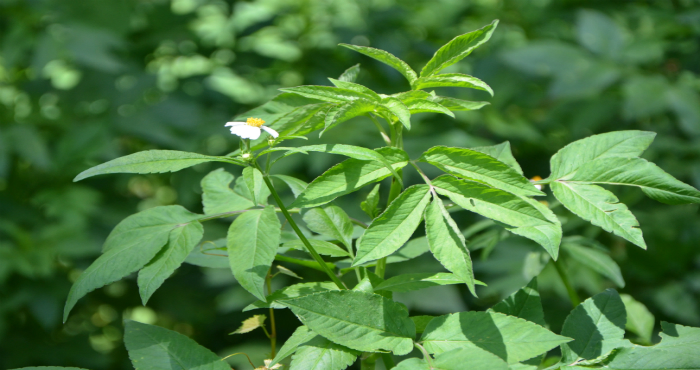July 25, 2019
One of the great mysteries of life, at least to homeowners attempting to have the perfect landscape, is how weeds suddenly appear in the most unexpected place, in other words there yard. Weeds, by definition, are plants which are not in the right place, where ever that right place is.
The transit possibilities are many for these vigorous interlopers. While all use natural elements for locomotion, one group supplements their travel efforts by hitchhiking on the hapless gardener themselves.
Hitchhiking was once a common means of low cost transportation for people unable to afford other mean. A person would walk to the nearest road and hold out their clinched fist with the thumb pointed up while attempting to make eye contact with sympathetic drivers.
In simpler times, hitchhikers were frequently provided a ride to a predetermined destination. In exchange they provided companionship and, hopefully, interesting conversation to the driver.
Hitchhiker’s colonization of new territory
Change in travel preferences notwithstanding, Wakulla County still has plenty of active hitchhikers which are seeking travel on the cheap. The bountiful appearance of unexpected plants indicates where the hitchhiking seeds ended their ride and began colonization of new territory.
One of the most common hitchhiking seeds locally is Bidens alba. It is known by an assortment of common names including Spanish needles, Beggar’s-tick and Hairy Beggar’s-tick and is a member of the daisy family.

Hitchhikers by any other name
The genus name Bidens means two-toothed and refers to the two projections found at the top of the seed. The species name alba means white which refers to the flowers with white pedals and a yellow center.
This Wakulla County native annual uses the two hooked prongs at the end of the seed to attach itself to anything coming into contact. Each plant produces an average of 1,200 seeds which germinate in the spring and rapidly grow.
Hard to control this weed
This weed is common in disturbed areas such as roadside ditches and fence rows with full sun exposure. It is capable of growing to six feet in height, but will take mowing and continue blooming.
The relatively recent interest in wildflowers has encouraged the propagation of this plant for landscaping purposes. Unfortunately, it is very difficult to control its spread once established.
Its spreading habits may cause consternation for landscapers, but it does have some positive effects. The blooms are a popular source of pollen for honeybees and other pollinators.
Beggar’s Lice, Sticktight and Stickseed
Hackelia virginiana is another hitchhiker currently active in Wakulla County. Common names for this weed include Beggar’s Lice, Sticktight and Stickseed and mothers countywide have removed these from their children’s clothing.
The seed pods are approximately 1/8 inch long and are covered with stiff bristly hairs protruding in every direction. Like Spanish needles, anything which brushes against these seeds will carry at least a few to new locations.
The seed pods are green, but will dry to a dark brown. When the outer husk is peeled away, the seed appears as a tiny tan to white bean.
The plant is an erect and has a single stalk about three feet in height. This shallow-rooted plant produces a bloom in mid-to-late summer in north Florida, and seeds in October.
This biennial plant has yet to gain the appreciation of wildflower lovers. It is universally considered a weed pest and treated as such.
One byproduct of hitchhiking weeds has been the inspiration for Velcro. Even unwanted visitors occasionally bring about something positive.
To learn more about the hitchhiking seeds in Wakulla County, visit the UF/IFAS Wakulla County website at http://wakulla.ifas.ufl.edu or call 850-926-3931.
| The Institute of Food and Agricultural Sciences (IFAS) is an Equal Opportunity Institution authorized to provide research, educational information, and other services only to individuals and institutions that function with non-discrimination with respect to race, creed, color, religion, age, disability, sex, sexual orientation, marital status, national origin, political opinions, or affiliations. U.S. Department of Agriculture, Cooperative Extension Service, University of Florida, IFAS, Florida A&M University Cooperative Extension Program, and Boards of County Commissioners Cooperating |
 0
0
